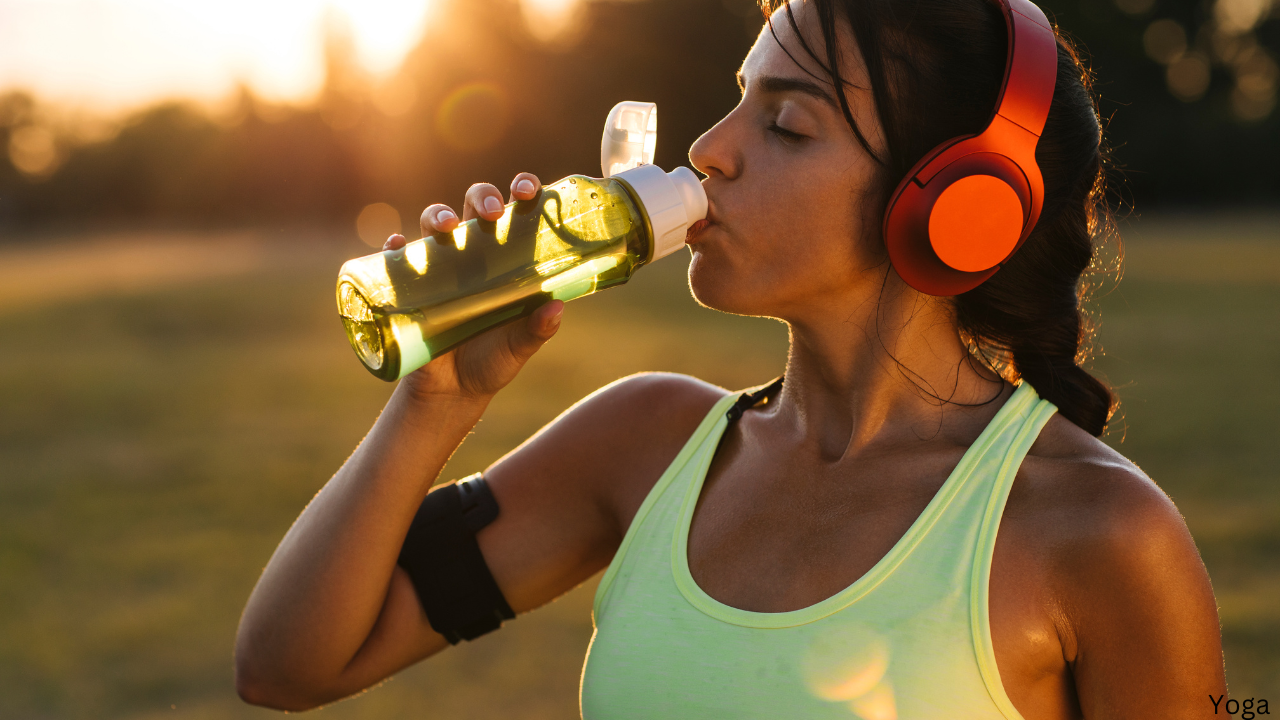Staying hydrated is essential for maintaining good health, boosting energy, and supporting overall bodily functions. Water plays a crucial role in various processes, including digestion, circulation, temperature regulation, and waste elimination. Despite its importance, a bunch of folks find it hard to down enough H2O every day. In this guide, we’ll explore why hydration matters and share practical tips to help you stay adequately hydrated.
- How Many Grams of Protein in an Egg
- Why Silk Almond Coffee Creamer is a Mus: The Cream of the Crop
- How long should you stay in the sauna
- The 10 Best Hamstring Exercises to Strengthen Your Legs
- Wellhealthorganic.com How to build muscle: Safely and Effectively
- Do You Have Duck Feet? Why You Need to Address the Problem
- Lose weight and build muscle or do one then the other
- Body Recomposition Workout Plan
Why Hydration is Essential
Water is involved in almost every function within the body. Here are some key reasons why hydration is crucial for health:
- Boosts Energy Levels: Dehydration can lead to fatigue and lower your energy levels. Proper hydration keeps you alert and helps maintain focus.
- Supports Digestion: Water aids in breaking down food and absorbing nutrients, ensuring your body can use what you consume effectively.
- Regulates Body Temperature: Sweating is one way our body cools itself, and adequate hydration ensures we can maintain a healthy body temperature.
- Improves Physical Performance: Staying hydrated helps muscles and joints function properly, which is especially important during exercise.
- Detoxifies the Body: Water helps flush out waste products and toxins through urine, sweat, and bowel movements.
- Enhances Skin Health: Drinking enough water can improve skin elasticity and complexion, reducing dryness and promoting a healthy glow.
- The Ultimate Guide to Making Delicious Homemade Protein Ice Cream
- Leg workouts and lower body exercises that can be done at Home
- Greek Yogurt vs Curd – Which is Better?
- How to Do Rear Delt Fly Machine
- The Dumbbell Standing Triceps Extension: The Ultimate Guide
- The Ultimate MF Beginner’s Training Guide Plan
- The Best Exercises for Back Workout
- Best Shoulder Exercises for Strength, Stability and Injury Prevention
- The 9 Best Bicep Exercises for Muscle Mass
- How to deadlift safely with proper form for beginners female
- The Complete Guide to the Valencia Diet for Effective Weight Loss
- Lululemon Mirror – An Interactive Home Gym Accessory to Take Your Workouts to the Next Level
How Much Water Do You Really Need?
The amount of water each person needs can vary based on factors like age, gender, climate, physical activity, and individual health. However, a common guideline is to drink about 8 glasses (or 2 liters) of water per day, often referred to as the “8×8 rule.” Another approach is to drink half your body weight in ounces. Despite its importance, a lot of people struggle to drink enough water each day. It’s like, they know it’s good for them, but for some reason, it’s just not as easy to remember or get into the habit of doing it. It’s kinda weird how we can forget to drink the stuff that keeps us alive, right?
Listen to your body’s signals: if you feel thirsty, drink water. Other indicators of hydration are pale or clear urine, feeling energized, and having moist, healthy skin.
Tips for Staying Hydrated
Here are some practical tips to help you meet your hydration needs every day:
1. Start Your Day with Water
Drinking a glass of water first thing in the morning is a great way to kickstart your day and rehydrate after a night of sleep. Add a squeeze of lemon for a refreshing and nutrient boost.
2. Carry a Water Bottle Everywhere
Having a water bottle handy all the time totally makes it a breeze to keep sipping on water day in and day out. Consider investing in a reusable bottle with volume markings to track your intake.
3. Set Reminders
If you often forget to drink water, try setting reminders on your phone or use a hydration app that prompts you to drink at regular intervals.
4. Flavor Your Water Naturally
If plain water isn’t appealing, try adding natural flavors like cucumber slices, lemon, mint, or berries. These add a subtle taste and may encourage you to drink more.
5. Eat Hydrating Foods
Fruits and vegetables like watermelon, cucumbers, oranges, strawberries, and lettuce have high water content. Including these in your meals can contribute to your overall hydration.
6. Drink a Glass Before Each Meal
This not only helps with hydration but may also aid in controlling appetite. Drinking water before meals can give you a sense of fullness, potentially reducing the likelihood of overeating.
7. Monitor Your Caffeine and Alcohol Intake
Caffeine and booze can totally make you pee more, which means your body’s losing fluids, buddy. Try to balance caffeinated or alcoholic beverages with additional water.
8. Adjust for Exercise and Weather
If you’re exercising, especially in hot weather, you’ll need extra fluids to replace what you lose through sweat. Drink water before, during, and after workouts to keep your body adequately hydrated.
Signs of Dehydration to Watch Out For
It’s important to recognize the symptoms of dehydration, which can vary from mild to severe:
- Mild Dehydration: Thirst, dry mouth, headache, and decreased urine output.
- Moderate Dehydration: Dark yellow urine, dizziness, dry skin, and fatigue.
- Severe Dehydration: Rapid heartbeat, confusion, low blood pressure, and, in extreme cases, loss of consciousness.
If you’re experiencing severe dehydration symptoms, it’s crucial to seek medical help immediately, as this can be life-threatening.
Benefits of Staying Hydrated
Making hydration a priority brings numerous health benefits, including:
- Enhanced Mood and Mental Clarity: Staying hydrated helps improve concentration, reduce headaches, and support overall brain function.
- Better Physical Performance: Hydration helps maintain muscle function, reduces the risk of cramps, and improves endurance, which is beneficial during physical activities.
- Healthier Skin: Hydrated skin appears more supple and youthful, as water helps flush out toxins that can cause dryness and acne.
- Improved Digestion and Weight Control: Water aids in digestion and can help curb hunger, which is helpful for those looking to manage their weight.
Creating a Hydration Routine
To build a habit of staying hydrated, consider establishing a daily routine:
- Morning: Drink a glass of water as soon as you wake up.
- Mid-Morning: Have a glass of water with a mid-morning snack or between tasks.
- Lunch: Include water with your lunch and follow up with a hydrating fruit like an orange or watermelon.
- Afternoon: Keep sipping water throughout the afternoon, especially if you’re feeling sluggish.
- Evening: Have a glass of water with dinner and another an hour before bed to end the day hydrated.
Conclusion
Staying hydrated is a simple yet impactful way to improve your health, mood, and energy levels. By incorporating a few simple habits, like drinking water first thing in the morning, carrying a water bottle, and eating hydrating foods, you can make sure you’re meeting your body’s hydration needs every day. Remember, small steps lead to lasting changes—start today, and enjoy the many benefits of staying hydrated!

